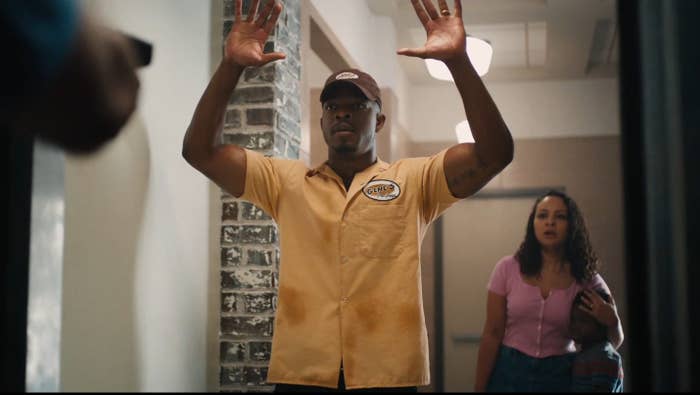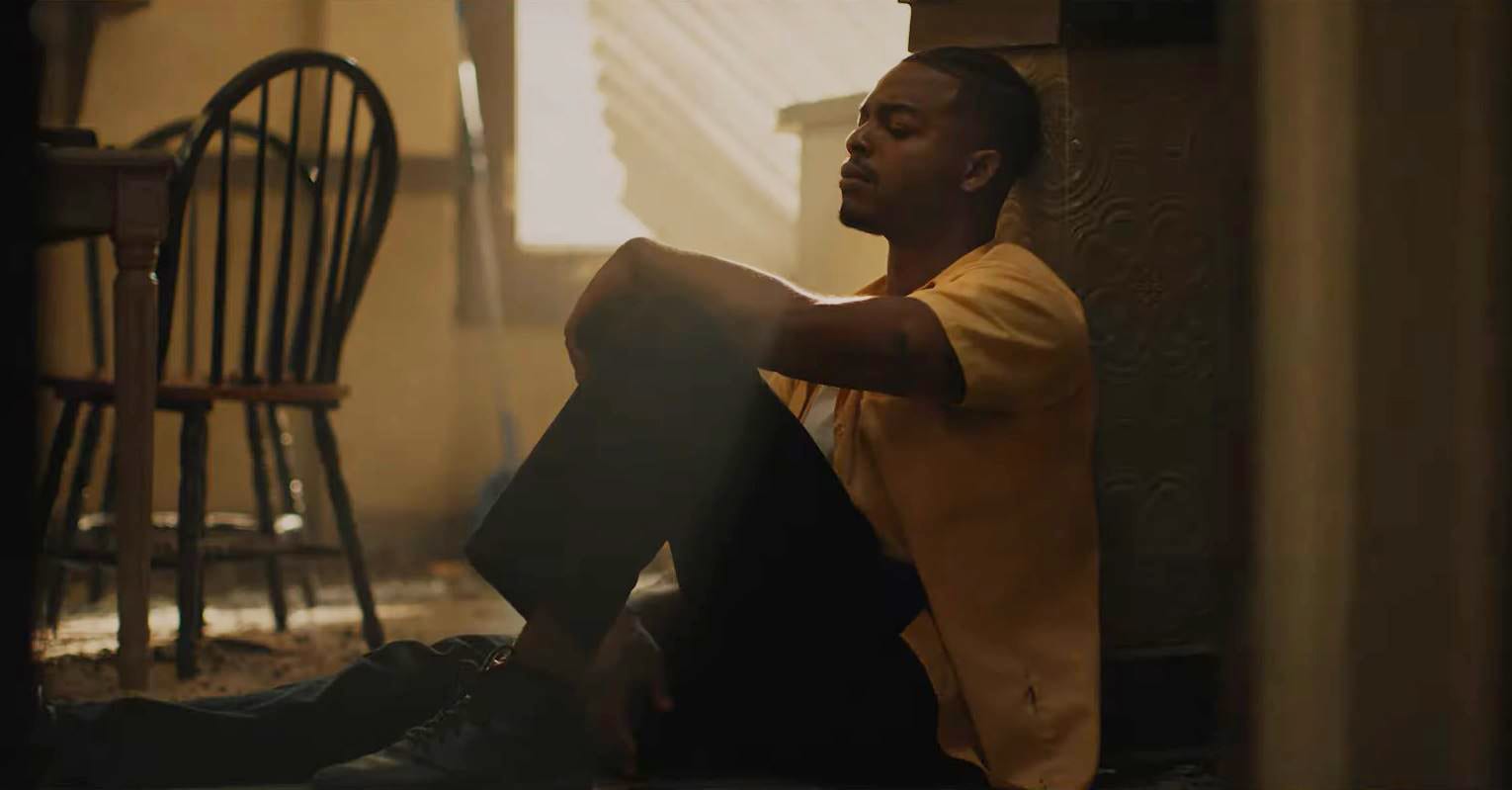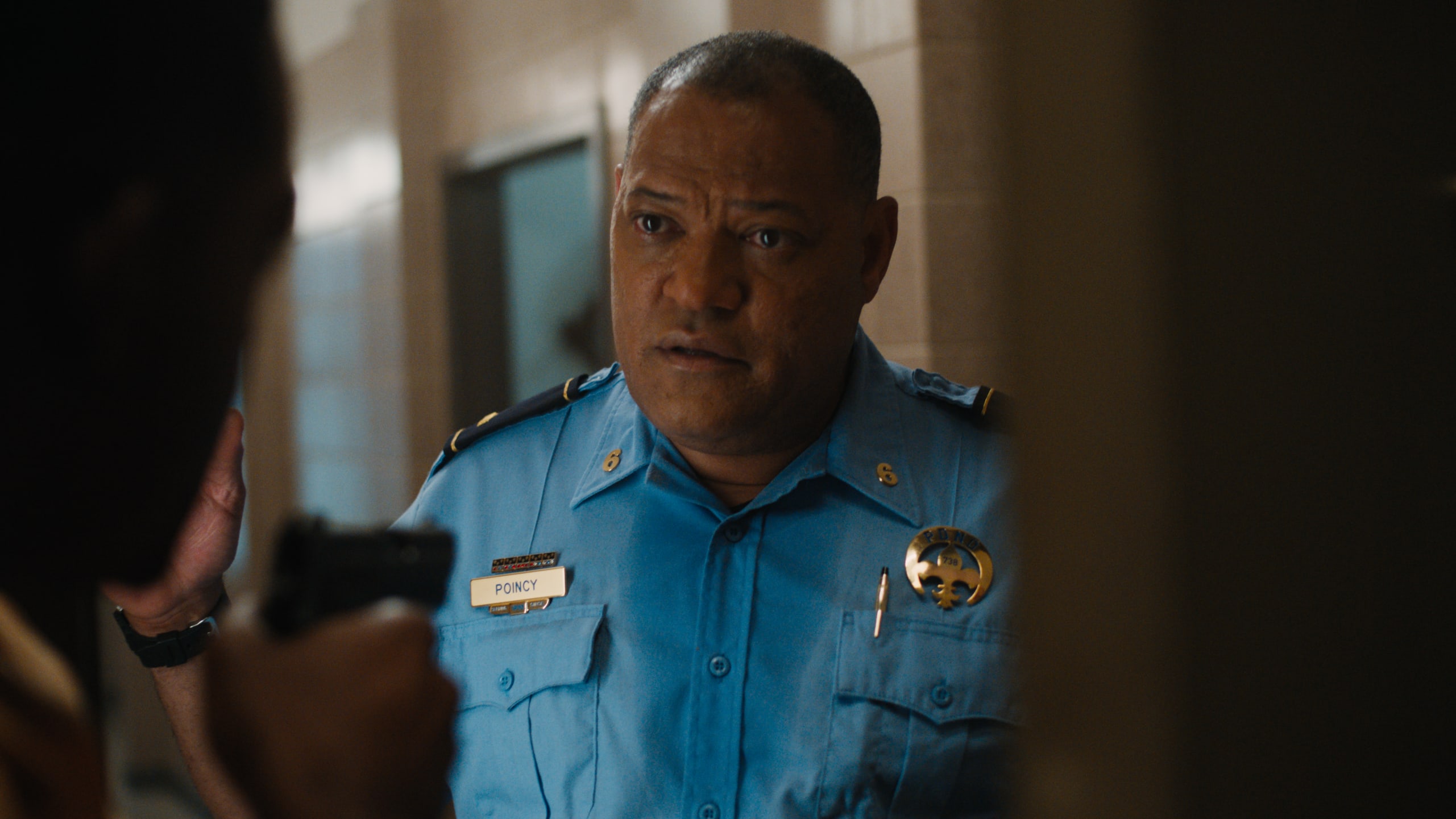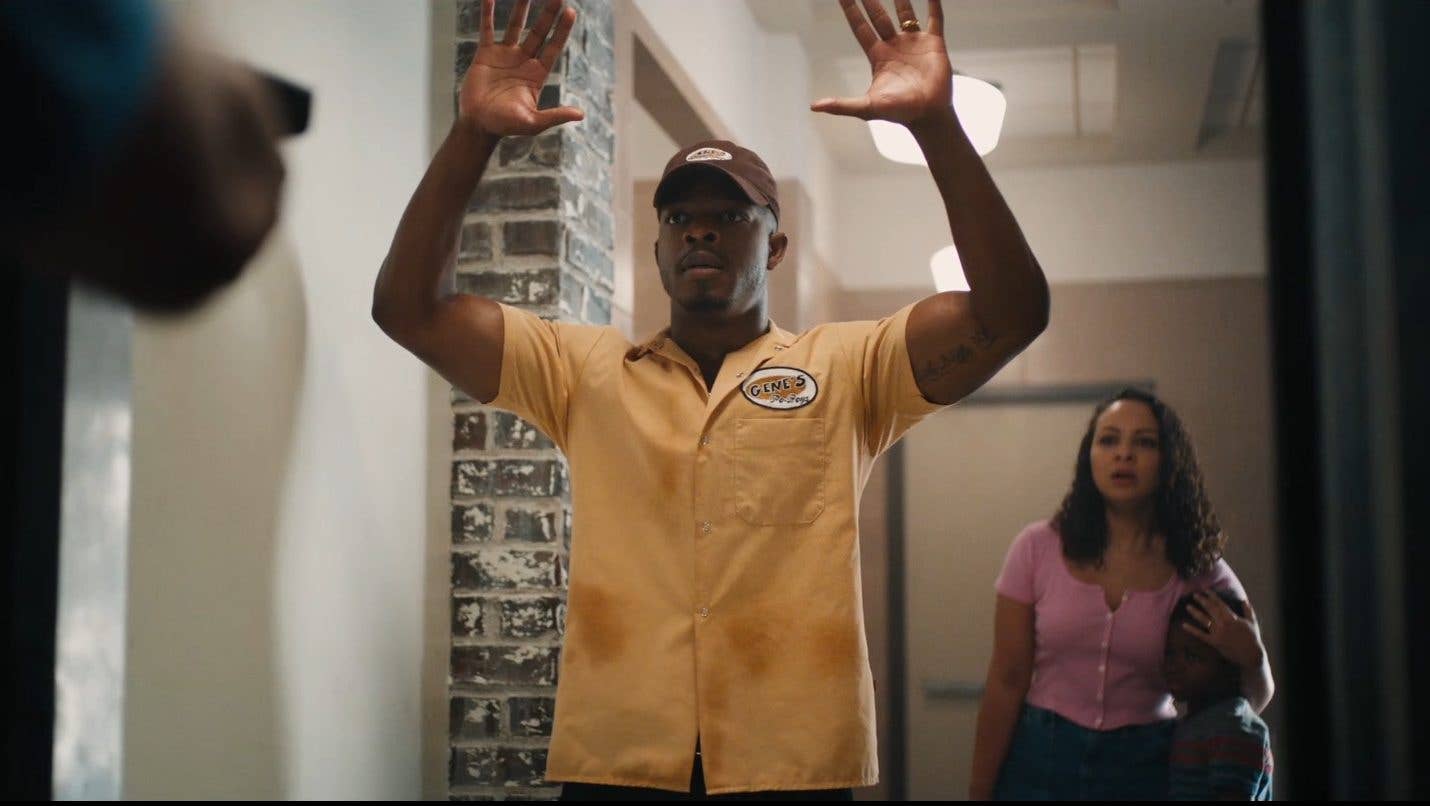
Quibi’s police drama #FreeRayshawn racked up three Emmy nominations back in the spring. Laurence Fishburne (The Matrix) and Stephan James (If Beale Street Could Talk) were nominated for Best Actor in a short-form comedy or drama while Jasmine Cephas Jones (Hamilton) scored a nod for Best Actress. It was one of the first dramas introduced on Quibi, filmed months before the times we are currently living in, but with eerie and sad coincidence to what’s going on today.
People are still mourning the deaths of Breonna Taylor, George Floyd, and protesting for systemic change, with Jacob Blake being the most recent case of police overreach. Blake survived, but he is paralyzed after being shot multiple times. The fictional story of Rayshawn is a familiar story similar to any real-life occurrence ripped straight from headlines.
#FreeRayshawn, executive produced by Antoine Fuqua, tells the story of a young war veteran who is set up by New Orleans police. The entrapment goes wrong and ends up with one cop dead. That leads Rayshawn to run for his life. After a police chase, Rayshawn barricades himself in his apartment building with his girlfriend and son as the New Orleans PD and SWAT team prepare to storm his home.
Rayshawn livestreams his ordeal to rally public support while Lt. Poincy, the lone cop who wants to prevent Rayshawn from getting killed, is caught in the middle of trigger happy police, his allegiance to the force, and Rayshawn’s reluctance to trust him. Each of the 15 episodes play out in 10-minute increments as viewers are taken on a troubling but suspenseful ride.
Complex recently caught up with Laurence Fishburne, who plays Lt. Poincy, Stephan James, who plays Rayshawn, and Jasmine Cephas Jones, who plays Tyisha Jones to chat about art reflecting real life, the movie’s black love undertones, and how Poincy’s good cop role is complicated.
Talk about how the family unit between Rayshawn, Tyisha, and their son was important to the story.
Stephan James: I think that’s an element that we don’t even get to talk about enough is this portrayal of Black love that we get to see on screen, and this portrayal of Black family. Seeing a Black family in distress, and rightfully so, and all the things that make them human beings. There’s a wife supporting her husband, even though she doesn’t know what the heck is going on, a son caught up in the turmoil of it all, but you get to see them stick together as a unit for better or for worse, and I think that’s an important visual.
Jasmine Cephus Jones: You’ve got this Black family in the middle of all of this chaos, and this American story of this man who fought a war in Afghanistan, comes back and can’t even get a proper job. It’s this classic American story that happens so much, and I think when we talked about our relationship—Stephan and I had a conversation of how we wanted to take it, and trust each other, and let go and be open and vulnerable with each other. I think that’s a very important aspect of our relationship with this so I thought that was really important to show.

It’s eerie being that you shot this before quarantine, but at the same time, it’s not an unfamiliar story, hence what’s happening now.
JCJ: These stories happen all the time. Even though I feel like, because there was a pandemic, because there’s a virus going around that doesn't discriminate— people really have to look at themselves and think over a lot of things. And unfortunately, George Floyd happened, and it blew up in a way that it’s never really happened before, but there’s so many other stories before this. We knew what this was. It could be anybody. It could be me, it could be Stephan that this can happen to. So we got that. We didn’t have to talk about that too much, but I think it was very important for us to tell this story and to keep telling these stories, and it just so happened that it came out this year when all of this was happening, and that’s what we do as artists, we kind of tell the times. It’s important for us to do that.
Art is always going to tell stories about things that happen in society that are cyclical, but it finally feels like people are finally starting to be more open to the messaging.
Laurence Fishburne: I think certain people have always been available to listen, and I think more and more people are now. I think we’ve seen that in the wake of recent incidents, particularly Mr. Floyd’s death, and Breonna Taylor’s death have opened people’s hearts and also obviously the pandemic that we’re in the middle of has given people the time to reflect on more than our usual distractions and our usual concerns.

Laurence, we first establish your character as the voice of reason, the good guy. Then, we find out he did something bad that could make him seem like a bad cop and then as the viewer, you watch the rest conflicted. Talk about the complexities of your character and how that drove the story.
LF: It’s always hard to tell these kinds of stories. I’ve been telling these kinds of stories for a long time. This one was really special to me because of the complexity of Rayshawn and Poincy. These are two men of different ages, both African American men in a very difficult situation, and the complexity of their interior lives, their situation, is the stuff of life which makes for great drama.
I was very excited about Quibi, and about the way they wanted to tell this story, and the way they wanted to deliver it vis-a-vis devices with a cliffhanger at the end of every episode to keep the audience engaged. I’m very excited about the use of social media as a tool, as a rallying cry to bring the safety net for Rayshawn and his family, all those things. Poincy, my character, having an incident in his past when he didn’t do the right thing and now being given the opportunity to try to redeem himself. All of that makes this very interesting and compelling.


